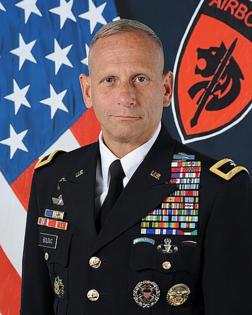POINT: Local problems need local policing, not federal military force
Published in Op Eds
Using federal law enforcement and military troops to enforce law and order in Washington may be well-intentioned, but history and experience suggest it is counterproductive. Rather than promoting peace, such deployments often undermine trust, escalate tensions and erode civil liberties.
Military and federal involvement in domestic policing has a troubled history, often linked to civil rights violations and heavy-handed governance. In Little Rock, Ark., in 1957, the deployment of federal troops was met with public resentment, fostering a perception of military forces as oppressors rather than protectors. This legacy fuels skepticism today, with military presence in civilian settings often worsening tensions between citizens and law enforcement.
In a democracy, civilian police — accountable to the public — are best suited to uphold the rule of law. Federal or military involvement blurs that line, heightening the risk of abuses of power. The sight of armed troops can intimidate citizens, discourage free assembly and provoke unrest, deepening the very instability they are meant to resolve.
Federal law enforcement and the military are not trained for local policing. The military’s focus is on combat, not community relations or conflict resolution. Applying military tactics in a complex urban environment like the District of Columbia risks a one-size-fits-all approach that overlooks local dynamics and root causes of unrest. Effective policing requires intimate knowledge of the community, its culture, social fabric and specific challenges.
Rather than calming a volatile situation, the arrival of federal troops can escalate it. Heavy weaponry and an “order at all costs” mandate can breed hostility and fear, increasing the likelihood of confrontations. Incidents like the Kent State shootings in 1970 illustrate how military involvement in civilian affairs can lead to tragic outcomes.
Instead of turning to federal forces, local authorities should strengthen community policing, invest in conflict resolution programs, and expand social services to address the root causes of unrest. Community policing fosters trust, encourages open communication, and holds officers directly accountable to the people they serve, key elements for sustainable public safety.
Local officers bring grassroots knowledge, understand cultural nuances, and build long-term relationships that federal agents often lack. This connection allows for targeted strategies against issues like gang violence, drug crimes and domestic abuse, developed in partnership with schools, nonprofits and residents.
International experience reinforces the limits of top-down policing. In Afghanistan, foreign-led policing efforts faltered due to a poor understanding of local customs, languages and governance, leading to ineffective enforcement and heightened tensions.
Community policing works because it is grounded in local trust, accountability and shared responsibility for safety. Deploying federal law enforcement or the military in civilian roles risks eroding these foundations. The safest, most resilient communities are built from the ground up, not imposed from above.
_____
ABOUT THE WRITER
Donald C. Bolduc, a retired general, spent 33 years in the Army Special Forces. He wrote this for InsideSources.com.
_____
©2025 Tribune Content Agency, LLC
























































Comments